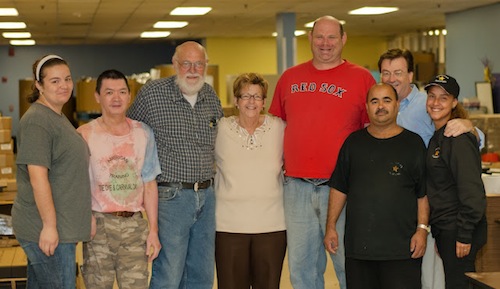


People with disabilities are in a continual struggle against being incorrectly or unfairly labeled. Advocates have made progress toward eliminating hurtful and derogatory terms thanks to the “End the R-Word” campaign and other awareness-building measures.
The Kansas University Research and Training Center on Independent Living’s “Guidelines for Reporting and Writing about People with Disabilities” (PDF) makes recommendations like “Put People First” and “Emphasize Abilities, Not Limitations,” but even a term like “people with disabilities,” which follows conventionally accepted style guidelines, encompasses too broad a spectrum of the population it represents to be considered fair or accurate in some cases.
Organizations that provide work opportunities, career training, and other services for people with disabilities seem to be facing a similar crisis of categorization. Such is the case with a class action lawsuit filed in Oregon. As Disability Scoop’s Michelle Diament reported back at the beginning of May, the plaintiffs contend that these sheltered workshops offer little to no supported employment services for people with developmental disabilities, putting them in violation of the American with Disabilities Act.
While the courts will bear out the truth of the accusation in Oregon, a June 5 op-ed in the Kansas Fort Scott Tribune newspaper by Tim Cunningham, entitled “Sheltered workshop,” contends that it is an outdated term for the types of services most of these organizations provide. Cunningham is the executive director for Tri-Valley Developmental Services, which serves individuals with disabilities in five Kansas counties. He prefers the term “Service Centers” and contends that “choice and opportunities prevail” in the 21st-century model, writing:
Today we have supported employment, where persons work in the community for wages and benefits. Today we have enclaves, where small groups of persons served work in the community for wages with the assistance of a job coach. Today, we have Life Enrichment, where persons maintain or acquire new skills… People with disabilities work on community service projects, attend sporting events, shop in the community, etc. ‘Sheltered’ is not a word used in our vocabulary anymore.
Cunningham acknowledges there are still Service Centers that do not act in the best interests of the individuals with disabilities they serve, but contends that a court decree to shut them all down would actually harm the employment opportunities for a population whose jobless rate is already several percentage points higher than the national figure.
A point that is substantiated by Randy Hylton, executive director of Vocations Services, Inc. in Liberty Missouri, who tells Liberty Tribune reporter Angie Anaya Borgedalen that as many as 7,000 jobs could be lost if Service Centers were forced to close. What’s more, says Hylton, its biggest impact will be on those individuals who may not feel ready to work in a community setting, telling Borgedalen:
The most important aspect of the sheltered workshop program is that they are happy here, make friends, socialize and feel like they are going to a real job, like everyone else.
Comments?
Image courtesy of Paige Connors, American Training, Inc.